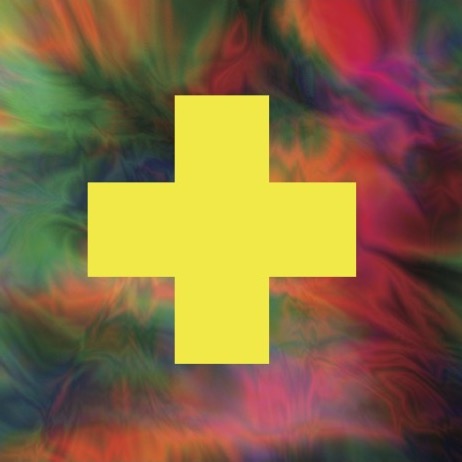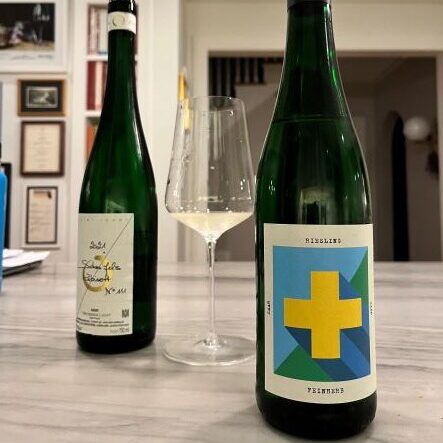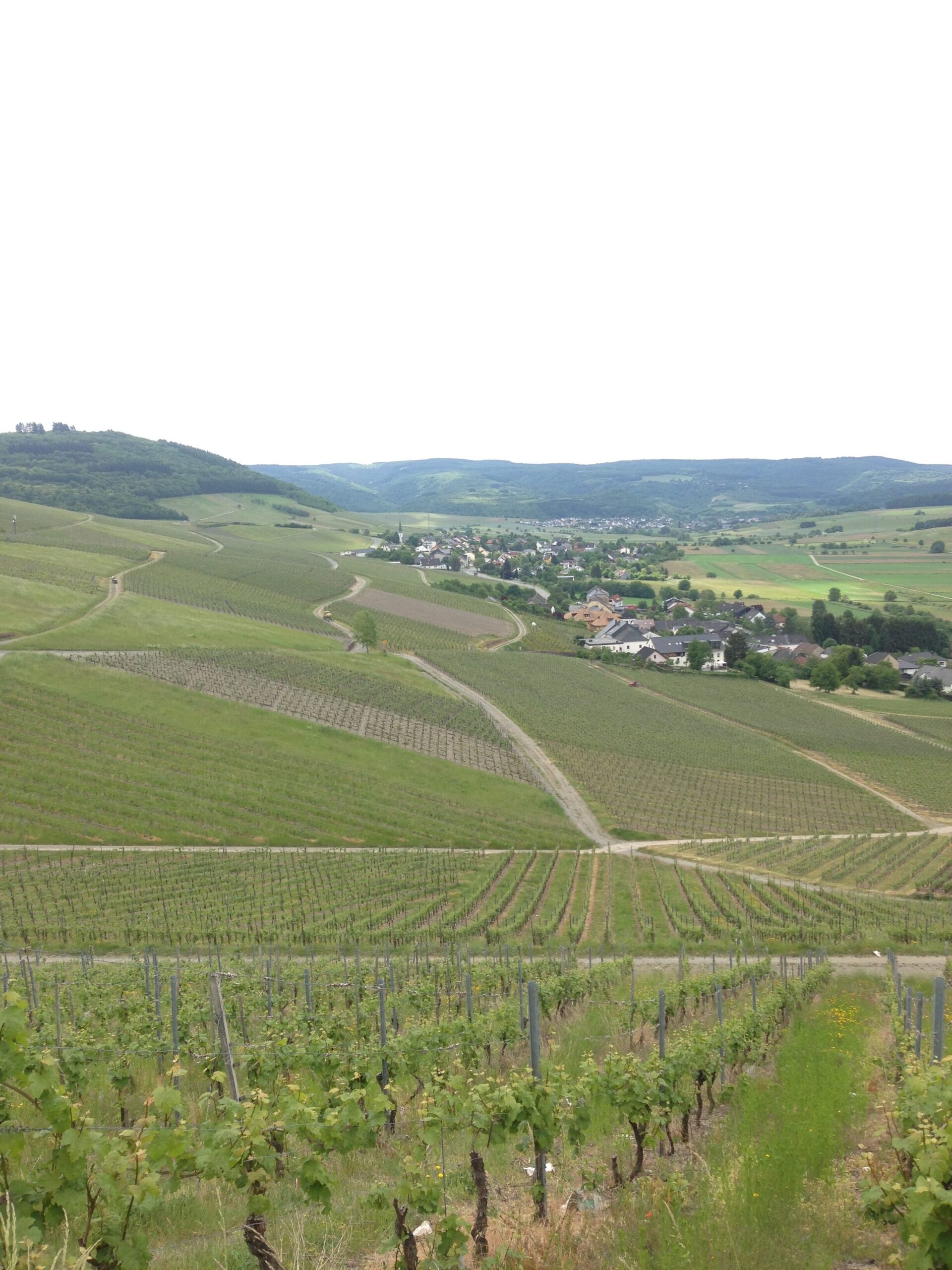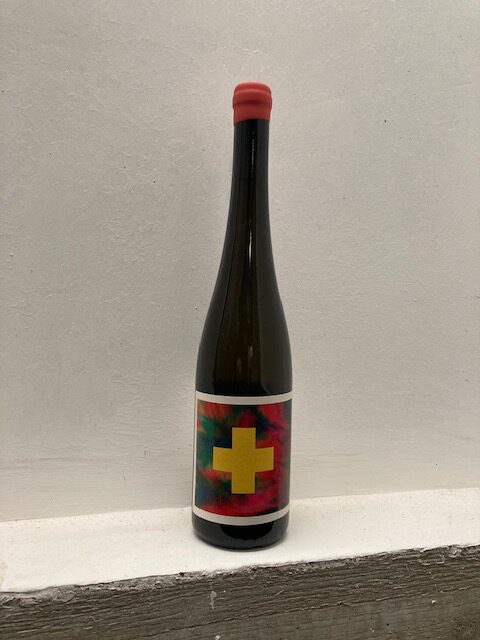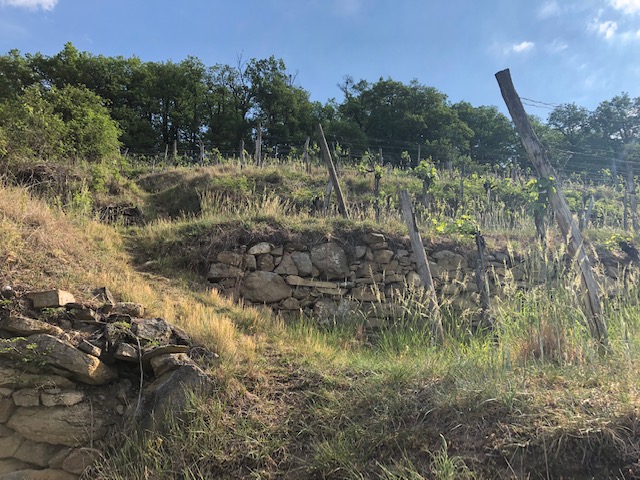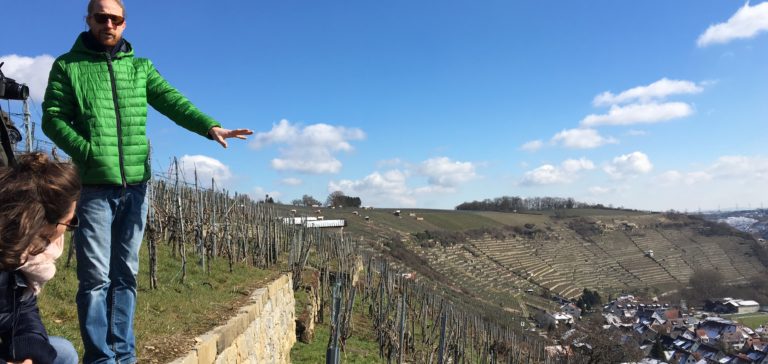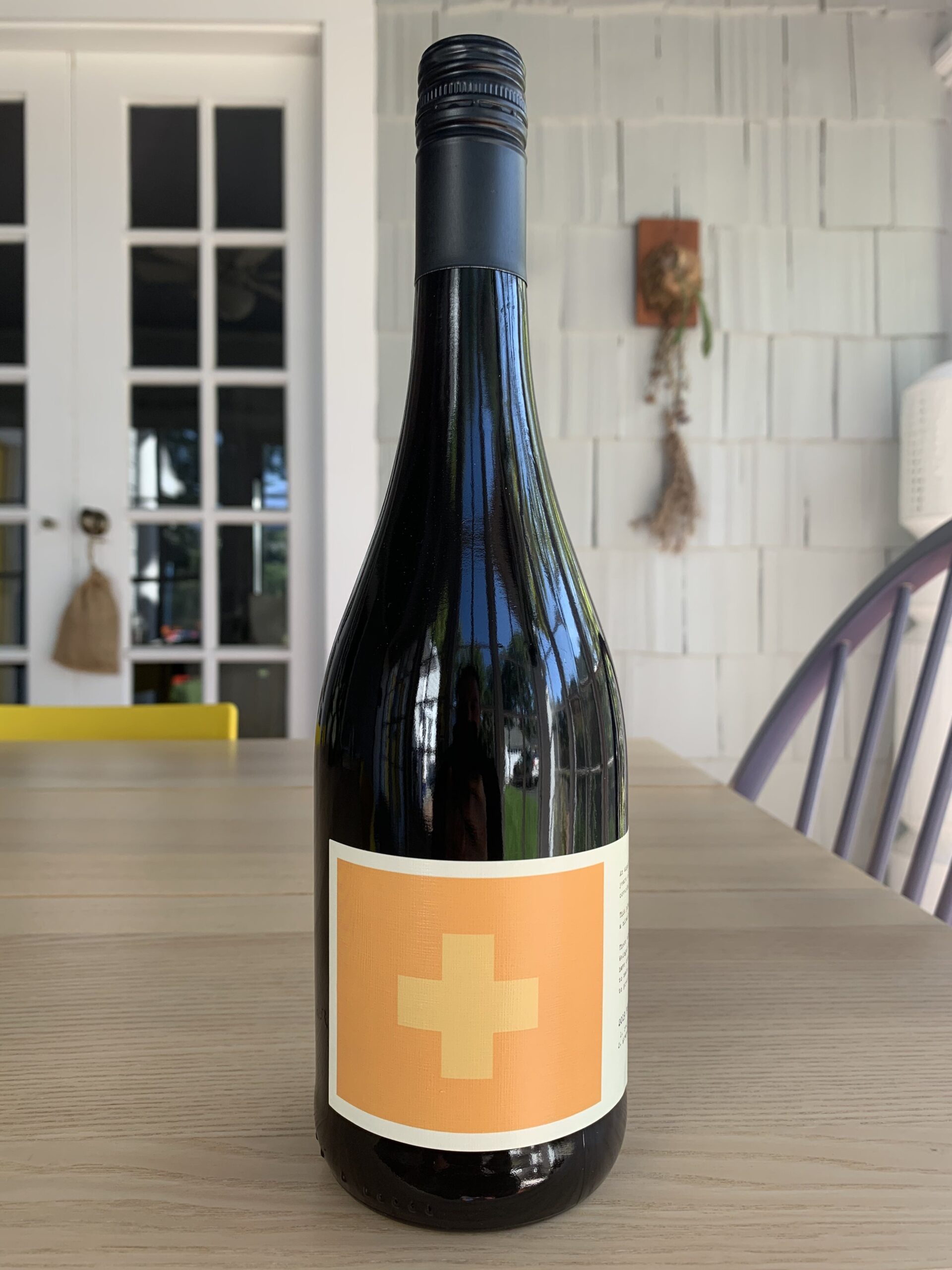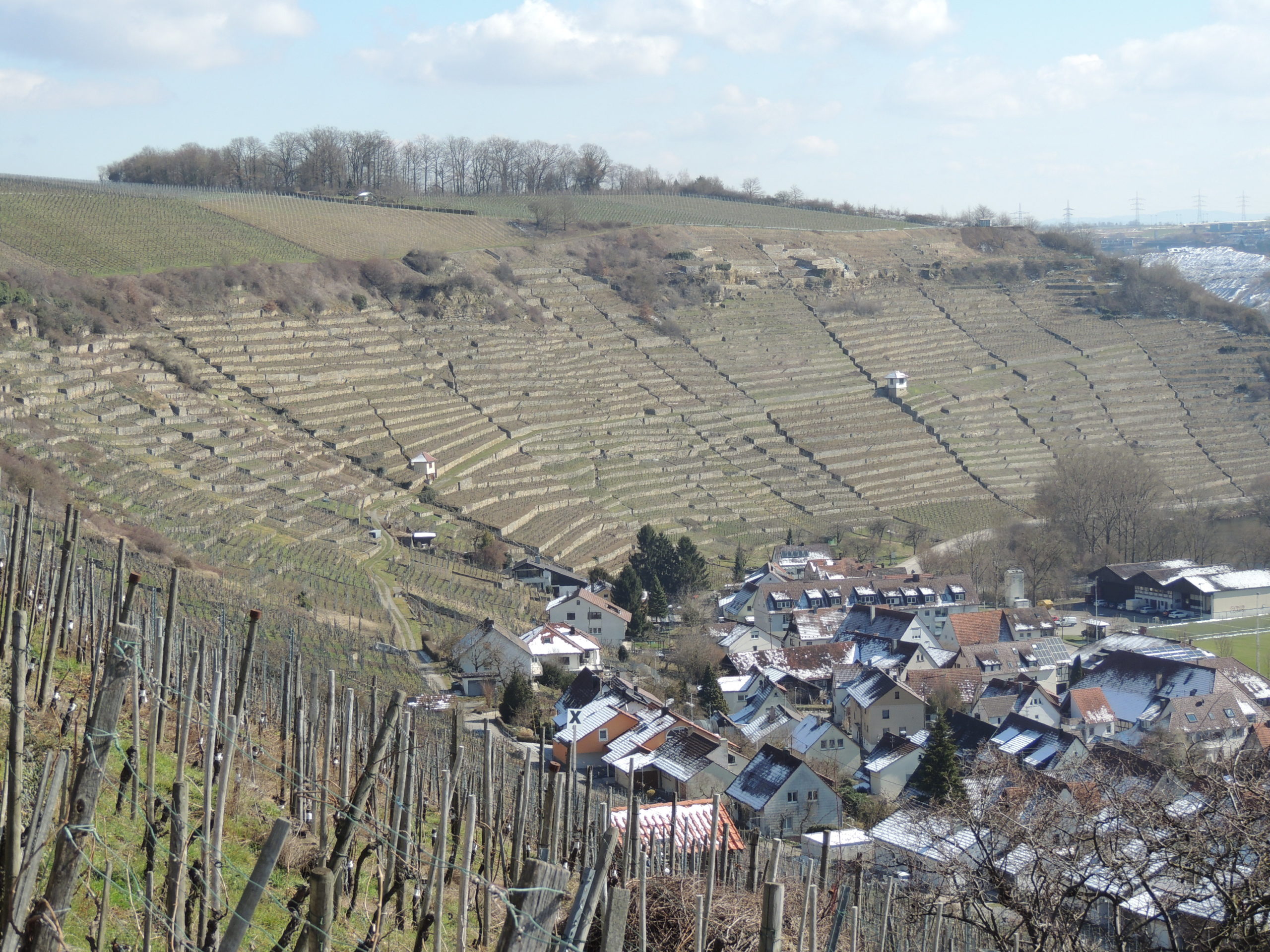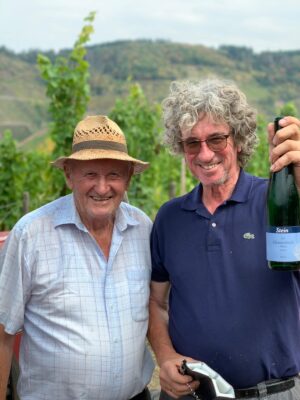The Vineyard Project began in the fall of 2019 as a way of connecting soulful yet overlooked vineyards with soulful growers.
Or, in certain cases, the project aims simply to help younger estates finance their growth and to give them a wider audience. But the larger goal, in a way, has little to do with either the vineyard or the grower: it’s about the community, the village, the people behind the wine.
When the vineyards are healthy and prosperous, so too is the community. When the people working in the vineyards are being paid a living wage for this work, the community is healthy and sustainable. If it takes a village to raise a vineyard, it’s also true that throughout countless villages in Europe, the vineyards have fostered the communities. If one goes fallow, the other may follow.
From Germany’s Mosel to Austria’s Burgenland: Read more about all of our Vineyard Projects below.
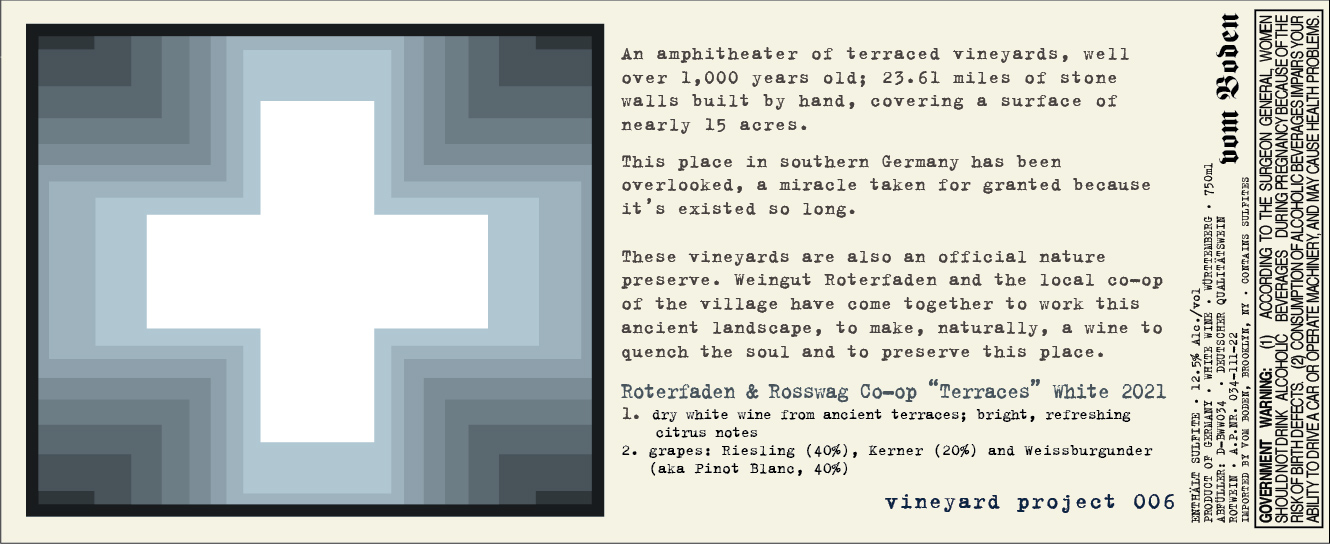
Vineyard Project 006 takes us even further into the obscure: to a tiny village about 30 minutes north of Stuttgart
The village of Rosswag is an incredible place, a viticultural treasure. The tiny village (population just over 1,200 inhabitants) is surrounded by an ancient amphitheater, a fortress of vines not unlike the “Terrassen-Mosel” built centuries ago. (See photograph to the right.)
These vineyards, as beautiful as they are, are profoundly expensive to farm. The majority of work must be done by hand. In the last few decades there have been enormous changes to the way wine is made and sold; financial pressures have seen many younger people heading to the big cities. The local cooperative, which farms 99% of these amazing vineyards, has handled the challenges of the new wine market better than most.
Hannes Hoffmann and Olympia Samara have stayed in the village, to farm this amazing place; they are the rare exceptions. Hannes was born in Rosswag; he and his wife have planted their flag here. They are, literally for these vineyards, the other 1%. They are the wine estate Roterfaden – the only other estate farming these vineyards. We have brought the two together. Hannes and Olympia, strong advocates of organic and biodynamic farming, can begin to work with the cooperative to consider more sustainable farming practices, methods that could scale. They will help in the cellars to ferment and blend a special bottling for us. In return, we will pay a substantially higher price for the wine and guarantee a purchase – and we will hope for an eager market.
By telling the story, by shining a light toward a place long overlooked, and by paying a sustainable price, we hope to work with the community to help save and preserve for the future these amazing vineyards, this amazing place.
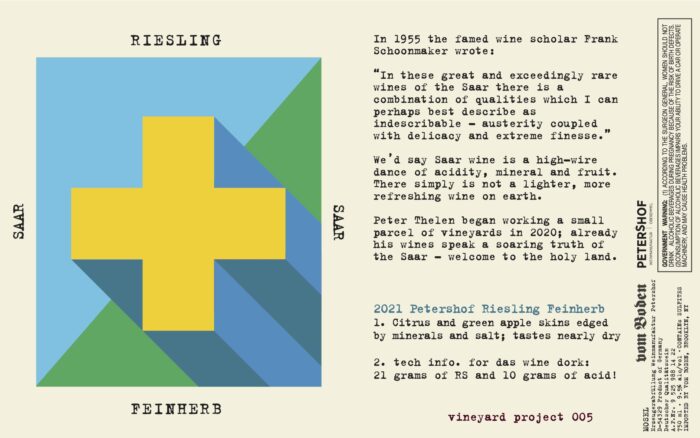
Vineyard Project 005: Finally we are able to quote Frank Schoonmaker on a label
If, as the wine-saying goes, “all roads lead to Burgundy” – well to us you’re on the wrong road. We recommend heading east out of Burgundy and to the Saar. This is the holy land.
“In these great and exceedingly rare wines of the Saar there is a combination of qualities which I can best describe,” writes Schoonmaker in his famous 1955 book The Wines of Germany, “as indescribable – austerity coupled with delicacy and extreme finesse.”
Peter Thelen was lucky enough to score some very serious vineyards in the cold neck of the Saar made famous by Hofgut Falkenstein. We’ve been tasting with him since his first vintage at his new estate Petershof and with 2021, well, there is no denying the rigor, the electricity, the “high-wire dance of acidity, mineral and fruit,” to quote ourselves on the label.
We’re thrilled to be working with Peter to help this young estate gain a wider audience, while also presenting to the world a simply textbook version of what the Saar can be. This is so serious.
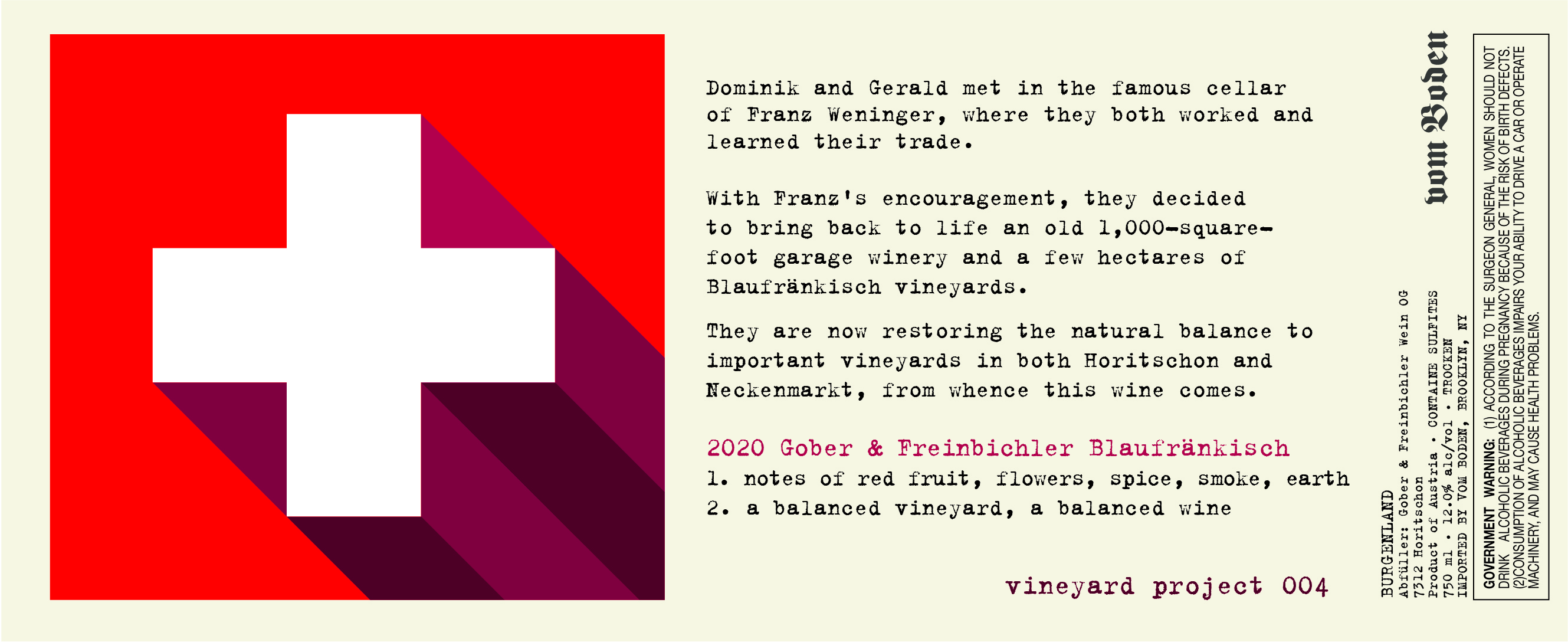
our second Austrian Vineyard Project – 004 – an introduction to the world of Gober & Freinbichler in Burgenland.
Dominik and Gerald met in the famous cellar of Franz Weninger, where they both worked and learned their trade.
With Franz’s encouragement, they decided to bring back to life an old 1,000-square-foot garage winery and a few hectares of Blaufränkisch vineyards purchased from co-op members in the villages of Neckenmarkt and Horitschon in the Burgenland.
Their main goal is to make Blaufränkisch that shows that the region is more than heavy soil and warm weather. The Neckenmarkt half brings minerality, crisp fruit and spice. Horitschon brings body, fine-grain tannin texture and bright acidity. Beginning with the 2021 vintage, this wine will be certified organic.
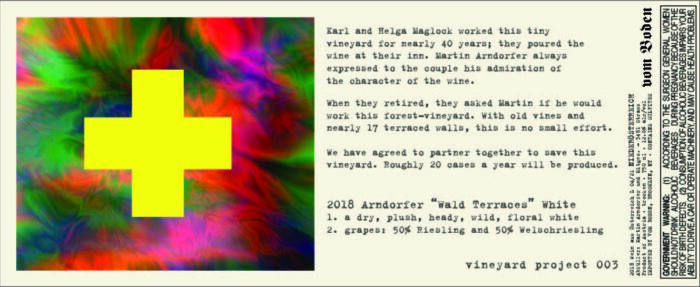
Vineyard Project 003 is our first Austrian project working with Martin Arndorfer in the Kamptal
This partnership came out of nothing less than perfect timing. While in Vienna for Karakterre back in 2019, we ran into Martin, an old friend, and explained the project. As it turned out, an old couple that ran a local inn and restaurant near Martin had just retired. They had made a small amount of wine from a terraced vineyard back in the forest, and Martin had gone to the inn many times and had tasted the wine. Although they were more hobby farmers, Martin always expressed to the couple his admiration for the wine; it spoke of a place.
When they retired, they asked Martin if he might be interested in farming this tiny site. While he wanted to work the vineyard because of the uniqueness of the site, he didn’t want to add another wine to his collection and he didn’t exactly know where the bottling should go. And so we agreed to partner with Martin on this wine. He continues to work this beautiful and fascinating vineyard, keeping it alive, and we agree to buy 100% of the wine, making it as easy as possible for all involved.
The site is Riesling and Welchriesling, planted in 1976 and 1994. The vineyard is far back in the mountains around the Kamptal, with around 19 terraces. The wine was directly pressed, and fermented in a steel barrique. It was bottled with no fining or filtration and very little sulfur.
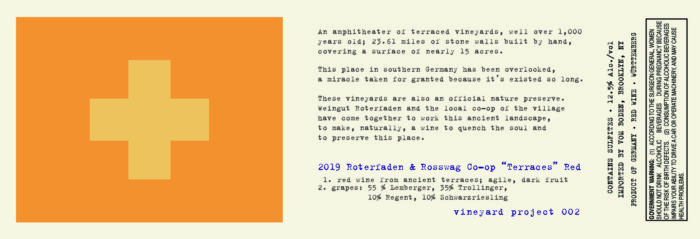
Vineyard Project 002 takes us even further into the obscure: to a tiny village about 30 minutes north of Stuttgart
The village of Rosswag is an incredible place, a viticultural treasure. The tiny village (population just over 1,200 inhabitants) is surrounded by an ancient amphitheater, a fortress of vines not unlike the “Terrassen-Mosel” built centuries ago. (See photograph to the right.)
These vineyards, as beautiful as they are, are profoundly expensive to farm. The majority of work must be done by hand. In the last few decades there have been enormous changes to the way wine is made and sold; financial pressures have seen many younger people heading to the big cities. The local cooperative, which farms 99% of these amazing vineyards, has handled the challenges of the new wine market better than most.
Hannes Hoffmann and Olympia Samara have stayed in the village, to farm this amazing place; they are the rare exceptions. Hannes was born in Rosswag; he and his wife have planted their flag here. They are, literally for these vineyards, the other 1%. They are the wine estate Roterfaden – the only other estate farming these vineyards. We have brought the two together. Hannes and Olympia, strong advocates of organic and biodynamic farming, can begin to work with the cooperative to consider more sustainable farming practices, methods that could scale. They will help in the cellars to ferment and blend a special bottling for us. In return, we will pay a substantially higher price for the wine and guarantee a purchase – and we will hope for an eager market.
By telling the story, by shining a light toward a place long overlooked, and by paying a sustainable price, we hope to work with the community to help save and preserve for the future these amazing vineyards, this amazing place.
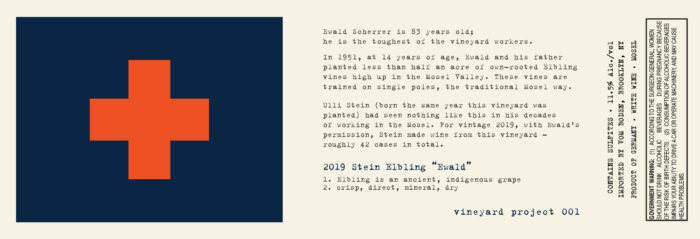
our first collaboration, Vineyard Project 001, was with the Mosel grower Ulli Stein and an older grower from Ulli’s village named Ewald
Ewald, pictured to the right, had planted around a hectare of ungrafted Elbling vines with his uncle in 1951.
It is a rare parcel of this ancient variety; the only ungrafted Elbling vineyard we were aware of in the Mosel or anywhere else for that matter. In the Riesling-dominated middle Mosel, the vineyard was ignored and Ewald was selling the juice bulk, for pennies on the dollar. The vineyard was supported, was tended and loved, because Ewald kept it going – but this was not sustainable.
We put the idea to collaborate in the heads of these two men and for a few years, it was beautiful. Unfortunately this project came to an untimely end as Ewald sold the parcel to his nephew who decided to rip up the vineyard. The 2020 vintage was the last VP001 made. We have sadly retired this number.
For more information on any of our Vineyard Projects, please email orders@vomboden.com.
